Israel’s far right plots ‘New Gaza’ without Palestinians
Prime Minister Benjamin Netanyahu says there’s no plan to reoccupy Gaza but he must contend with ministers who support the push and could topple his government.
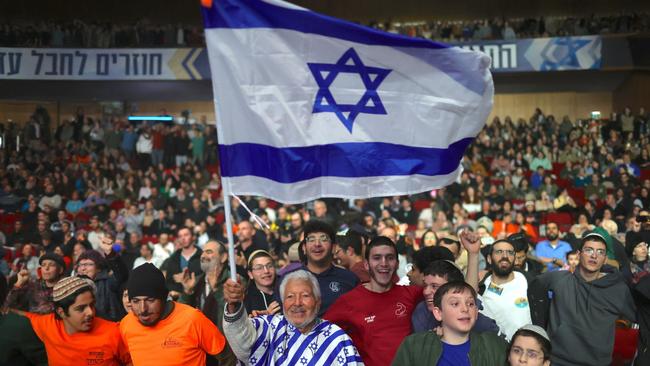
Eitan Cahn has a vision for the future of Gaza City. He wants to turn it into a hi-tech, green city that will draw Jewish residents and foreign tourists alike. It would be renamed “New Gaza,” and Palestinians wouldn’t be welcome.
“The only way to have peace is if the Arabs are not there,” said the 49-year-old rabbi during an event described as “Settlements Bring Security,” held in Jerusalem on Sunday evening. “It will be an Israeli city.”
Israel still has no concrete plan for what will happen in Gaza after the end of the war, but its influential far right has a clear goal in mind: the Jewish resettlement of Gaza.
That objective was laid out explicitly on Sunday, when thousands of people, most of them religious Israeli settlers living in the occupied West Bank, joined government ministers at a raucous event in a packed Jerusalem auditorium.
Organisers presented maps featuring plans for new Israeli settlements in Gaza. Crowds broke into dances to the tune of patriotic songs, as footage rolled of Israeli soldiers in Gaza brandishing signs saying they were back in the strip for good. Participants said Palestinians would be encouraged to leave the enclave altogether.
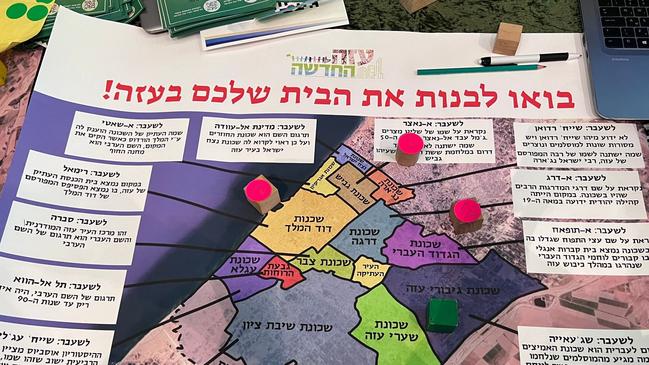
Israeli Prime Minister Benjamin Netanyahu and other senior officials have repeatedly said they have no intention of reoccupying Gaza, beyond maintaining an open-ended security presence. Most Israelis oppose resettling in Gaza – only 35 per cent in a recent Hebrew University poll support annexing and resettling in the enclave. But Netanyahu’s ultranationalist flank holds tremendous sway. They could topple his government, forcing new elections when some 70 per cent of Israelis disapprove of the prime minister.
At the same time, any attempt to resettle in Gaza would likely harm Israel’s relationship with the US and moderate Arab countries.
The US has repeatedly said it opposes any shrinking of Gazan territory and in such a scenario Saudi Arabia would likely abort efforts under way to normalise relations with Israel, which has long been a priority for Netanyahu.
White House National Security Council spokesman John Kirby on Monday called the behaviour of Israeli ministers who backed the event about building settlements in Gaza “irresponsible, reckless, incendiary.”

At the pro-settlements event Sunday night, Israel’s hard-right national security minister, Itamar Ben-Gvir, joined in the dancing and challenged Netanyahu to take “courageous decisions” about the future of the strip. He was among the 11 government ministers and 15 members of parliament – including many from Netanyahu’s own Likud party – who went on stage to sign a public declaration in support of re-establishing Israeli settlements in Gaza.
Asked about his views on Sunday’s event promoting resettling in Gaza, Netanyahu said it would be a political decision his government had yet to make. Several Israeli politicians strongly criticised the public display of support for resettling in Gaza.
“The participation of ministers and coalition members in yesterday’s conference hurt Israeli society during the war,” Benny Gantz, head of the centre-right National Unity party and a leading member of the governing coalition, said Monday.
“They hurt our international legitimacy, hurt efforts to create a framework to return the hostages.” Yair Lapid, Israel’s leading opposition politician, called the conference “harmful” and “a disgrace on Netanyahu.”
After Israel captured the West Bank and Gaza in 1967, Israel began building settlements in both territories. Derided at first, the Gush Emunim – or bloc of the faithful – movement, founded in the early 1970s to promote the building of Jewish settlements in the West Bank and Gaza Strip, has left a legacy of nearly 750,000 Israelis living in the West Bank and East Jerusalem. The settlements are regarded as illegal by most countries and are considered by many to have undermined efforts to create a sovereign Palestinian state in the West Bank and Gaza.
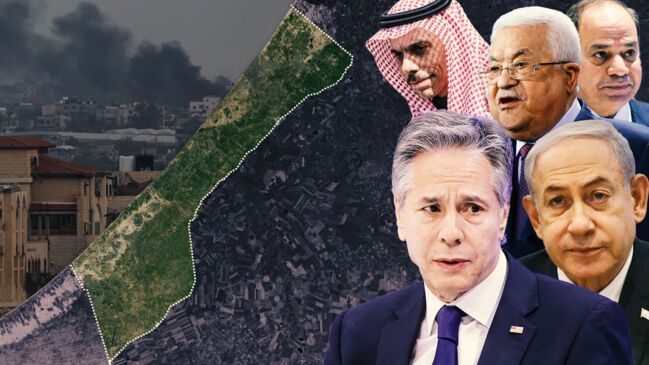
Israel unilaterally pulled its settlements out of Gaza in 2005, partly because they were seen as a security liability and as a way to kickstart peace negotiations with Palestinians. The move was viewed as a heavy blow to the ultraright settler movement that has since vowed to rebuild one day.
Hamas took power in the strip two years later and has ruled the enclave with an iron fist since. Israel is determined to eradicate Hamas from the strip in response to the Oct. 7 attacks in southern Israel, in which around 1200 people were killed and some 240 were kidnapped, according to Israeli authorities.
Some far-right politicians say there can be no security for the Israeli population unless Israel has full control of the strip, and those voices are getting louder. During an impassioned speech on Sunday night, Ben-Gvir lambasted the decision to evacuate settlements from Gaza.
“We warned and screamed,” but no one listened, he said. “If we want to make sure there isn’t another October 7, we need to return home and control the land.” He said he supports the transfer of Palestinians out of Gaza.
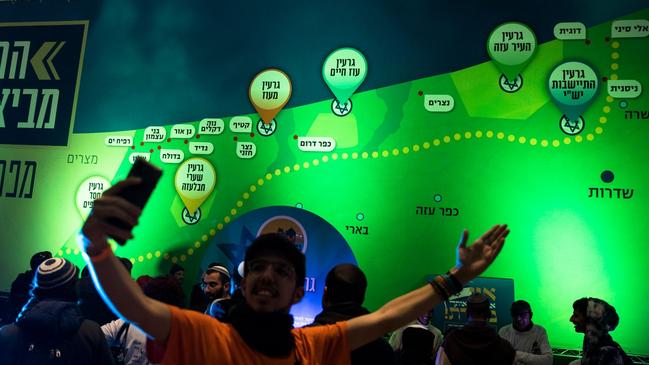
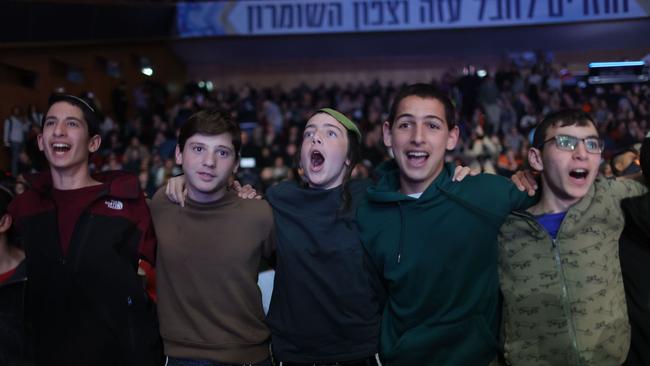
Netanyahu now finds himself caught between his far-right allies and US pressure to avoid a long-term Israeli presence in the enclave. The future of Gaza has been a cause of friction between Israel and the White House. The Biden administration is pressing Israel to wrap up its war against Hamas and to accept a two-state solution.
More than 26,000 people, mainly women and children, have been killed in Gaza since the start of the Israel-Hamas war, according to Palestinian authorities. The figure doesn’t distinguish between civilians and combatants.
Netanyahu has repeatedly rejected the possibility of establishing an independent Palestinian state. Under his watch, Israeli settlements in the West Bank have vastly expanded.
Dror Etkes, a researcher at Kerem Navot, a civil-society organisation that tracks settlements in the West Bank, said settler groups should be taken “very seriously” considering their record in the West Bank and their high representation in government.
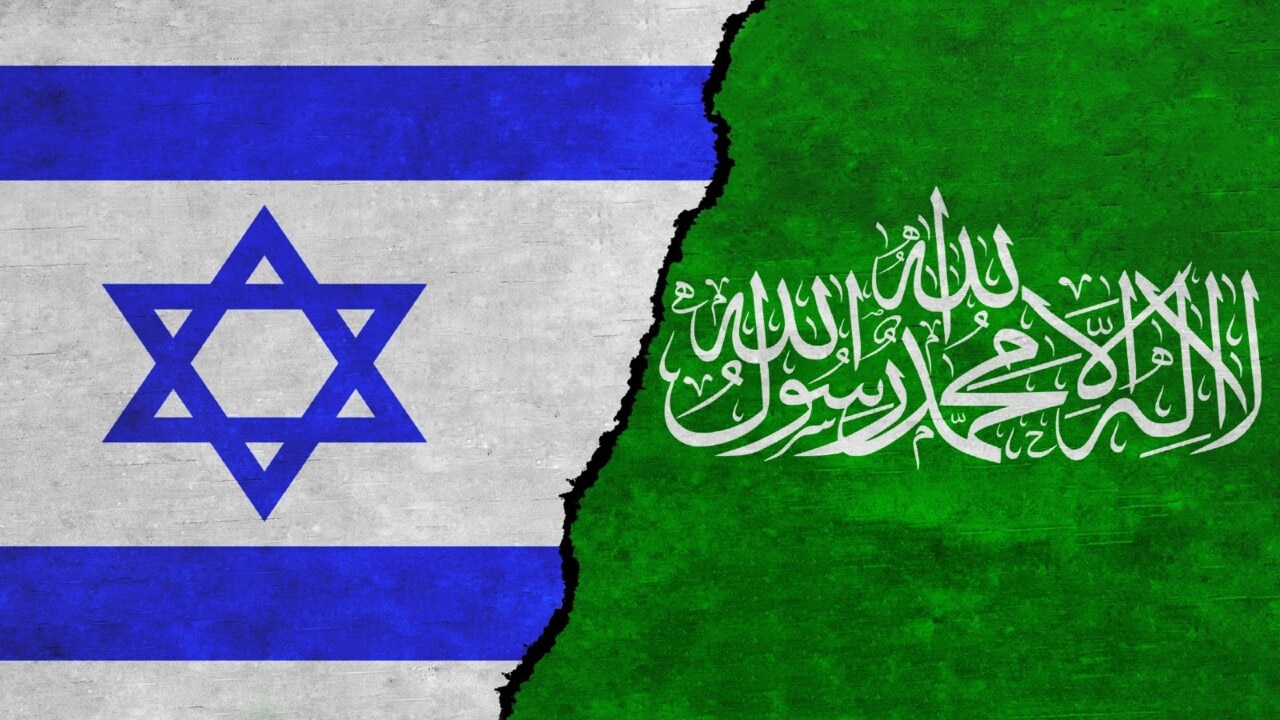
Extremist ideas such as forcibly removing Palestinians from Gaza “have a stronger hold on Israeli society than ever before,” said Etkes, explaining that the Oct. 7 massacre gave this type of thinking a “serious boost.”
On Sunday night, a huge map of Gaza loomed over attendees, the locations of possible future Israeli settlements marked clearly. Organisers clustered behind six booths, one for each of the aspirational Israeli settlements, from beachfront villages in the north to an ultraorthodox community on the Egyptian border. Participants were encouraged to sign up as potential residents. Dozens of families already had.
Cahn, the rabbi, presented a colour-coded map of Gaza City, with neighbourhoods carrying Hebrew names. The area of Shujaiya was renamed “Heroes of Gaza,” after the Israeli soldiers who recently died there. The formerly upscale area of Rimal, home to the site of an ancient synagogue, was labelled “King David neighbourhood.”
Cahn invited attendees to put their names on toy wooden blocks and place them on areas where they would like to live. “This is my fish restaurant in the harbour, it’s called Shabout,” said one participant, pointing at one such wooden block.
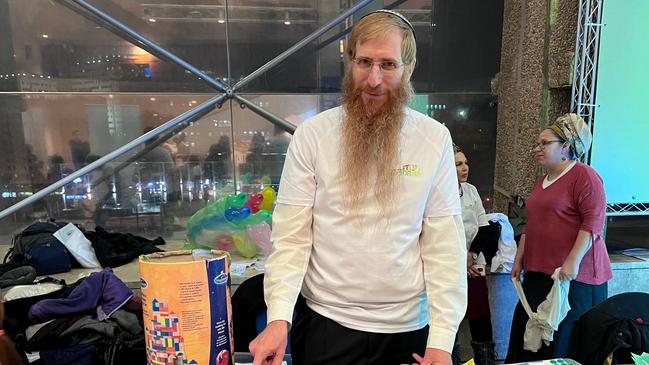
Bat-Hen Sarig, 36, grew up in an Israeli settlement in Gaza. She said she has been dreaming of going back ever since she was forced to leave over 18 years ago. The start of the war gave a new impetus to calls for reoccupying the enclave, with aspiring Gaza settlers now organised in committees to discuss their plans.
“Six months ago, we couldn’t have imagined that this moment would’ve come so soon,” said Sarig, who lives in a West Bank settlement. “If we go back it’s not just to the north of the strip. All of the Gaza Strip belongs to the people of Israel.” She is hoping to be back in Gaza as soon as this spring.
Ronit Bonomo, 66, said that Israeli settlements are the only way to ensure a lasting peace.
“We tried for 17 years to live in peace with the Arabs. After what happened on October 7, we can’t live in peace. People had enough of war, ” said Bonomo, who was among the earliest residents of an Israeli settlement in the West Bank in the early 1980s. “That is what we are trying to do again.”
Bonomo sat behind a booth promoting the establishment of a seafront settlement in southern Gaza called Oz Khaim, in the area of present-day Deir al Balah. Several families have already volunteered to eventually move there, she said.
“We have a lovely community,” said Bonomo. “It will be on the beach. Wouldn’t that be lovely?”
The Wall Street Journal

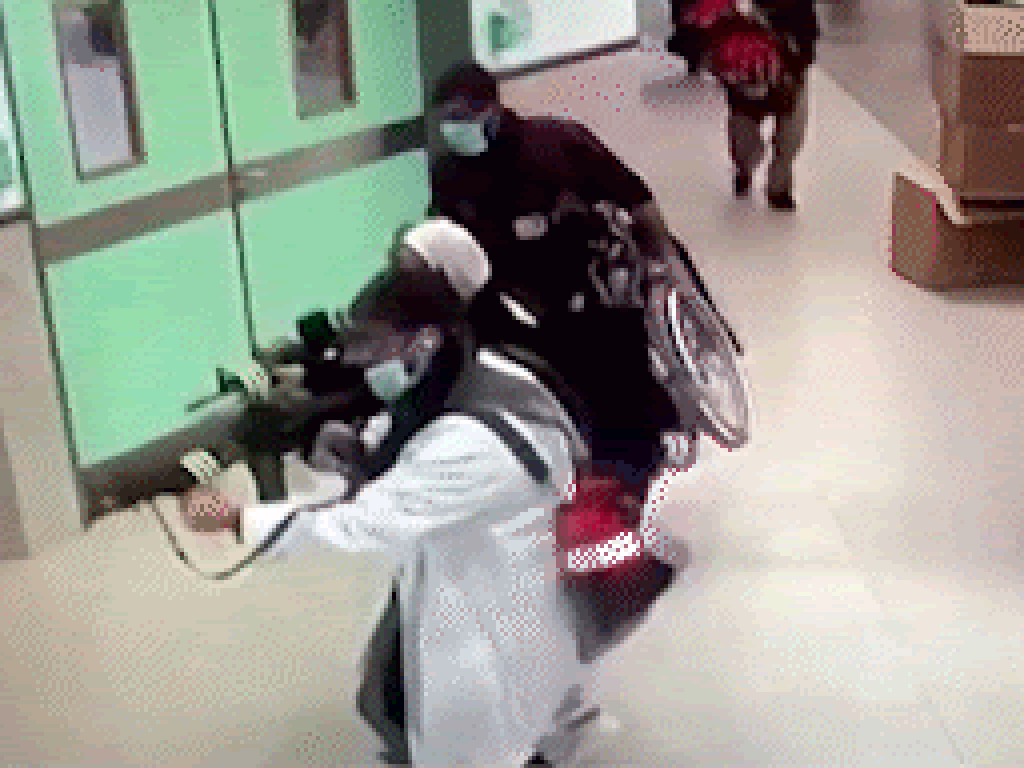


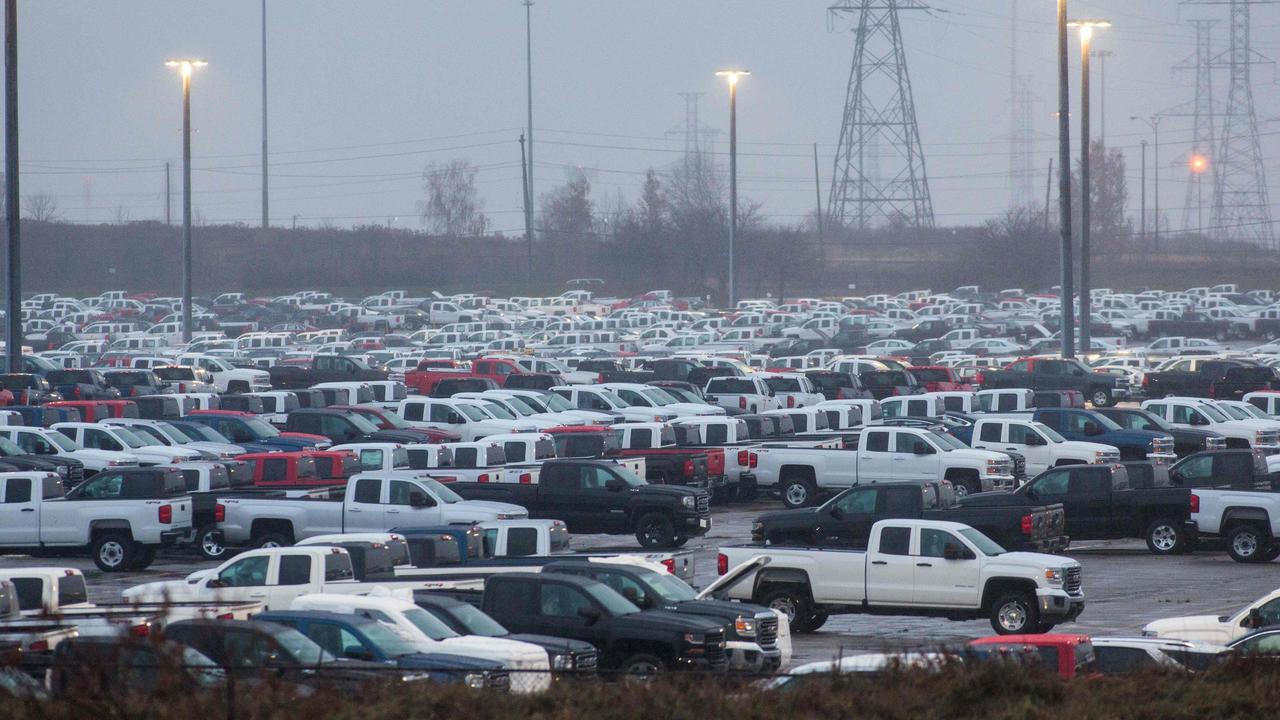
To join the conversation, please log in. Don't have an account? Register
Join the conversation, you are commenting as Logout